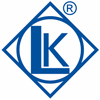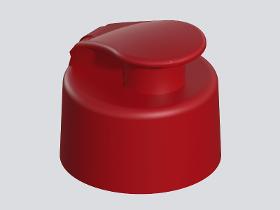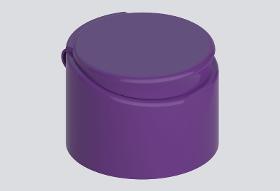HEXPOL TPE GMBH
Germany
Manufacturer/ Producer


HEXPOL TPE GMBH
Germany
The Mediprene 500M range of TPEs for medical applications includes several transparent grades. These compounds were developed in response to an increasing interest in transparent compounds from the medical market. Mediprene TPE materials are PVC, silicone and latex free, making them allergen free and a viable alternative to PVC based compounds. They offer hardnesses from 30 to 90 Shore A, allowing a wide degree of design freedom. Special Features Good transparency PVC, silicone and latex free Soft-touch appeal 30 to 90 Shore A Coloured, transparent grades Production site accredited to ISO 13485 Sterilizable with gamma, ethylene oxide (EtO) and steam Flexibility over broad temperature range Excellent sealing and adhesion Applications The ability to clearly see through a product to monitor the patient is an important feature for many medical devices such as face masks. Transparent TPEs can also be used in tubing and dental applications. Coloured & transparent In medical devices
Request for a quote
HEXPOL TPE GMBH
Germany
In the extrusion process the TPE pellets are poured into a hopper are heated in the barrel and turned into a melt by this heat and shear. A screw carries the melted plastic through a shaped die to produce continuous lengths of shapes with the same profile, which are then cooled by air or water. Our TPE compounds are easily extruded into single and complex profiles. They can also be co-extruded with other materials to yield a part with both rigid and soft components. They exhibit improved profile flexibility. The SEBS compounds, with their saturated intermediate blocks, are very stable against thermal degradation. On the other hand, the SBS compounds degrade if overheated or if a screw with excessively high compression ratio is used. The information below is intended as a general overview, settings may vary depending on the specific grade selected. Please CONTACT US for detailed processing information SEBS based materials Equipment Extruders used for polyolefines are best for TPE comp
Request for a quote
HEXPOL TPE GMBH
Germany
In the injection moulding process TPE pellets are fed into the machine through a hopper and then into a heated barrel. The heat from the barrel turns the material into a liquid resin which is then injected into a closed mould under high pressure. After allowing the molten polymer to cool, the finished part can be removed from the mould. Injection moulding is a high-volume, high tooling cost process, the advanced properties of our TPE compounds deliver short cycle times allowing parts to be produced at a rapid rate. The information below is intended as a general overview, settings may vary depending on the specific grade selected. Please CONTACT US for detailed processing information Settings Equipment Conventional injection moulding machine Compression set At least 2:1. Special screws with short sections and higher compression ratios (3:1 to 4:1) may be good at low screw speeds Shrinkage Between 1.0% and 2.5% depending on the grade, type of application and location of the gate. Moul
Request for a quote
HEXPOL TPE GMBH
Germany
Thermoplastic elastomers are bonded to engineering plastics by melt adhesion to the most widely used structural plastics. Since the materials are bonded together at the production stage, no separate adhesive is needed, which makes the process faster and more cost effective than if the two parts were assembled together after each had been produced separately. There are two main processing procedures used to achieve bonding, overmoulding and co-extrusion. When overmoulding with soft components, the surface of the hard component softens and a diffusion of the molecules in the outer layer takes place. A prerequisite for this is that the two materials, i.e. the TPE Compound and the engineering plastic, must be compatible with one another, meaning that they must not reject one another’s molecules. As the molecule mobility increases, the molecules of the two materials will diffuse and this gives rise to so called melt adhesion. The molecules of the two materials form a network at the surfac
Request for a quoteManufacturer/ Producer
Max-Planck-Straße 3
96215 Lichtenfels - Germany
europages also recommends
A selection of companies related to the activity:
A selection of products that might interest you
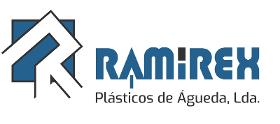
RAMIREX - PLASTICOS DE AGUEDA, LDA.
Portugal
Ramirex - Plasticos de Agueda, Lda is a Portuguese company with 40 years of experience in the plastic injection field. We produce our products using our own moulds and exclusive items using our client's moulds. We offer a wide range of products, from furniture accessories (sofa feet, tailor made shutter doors, caps and heads), drawing and office material (set squares, rulers, protractors, letter trays, pen cups and magazine racks) and sealing material (holders and heads). We also manufacture technical parts for different areas (for exemple, for refrigeration equipment, electrical panels and different telecommunication devices), with design and development thay may be either internal or external, according to the requirements of each client. We are a specialized and dynamic technical team, that combines the experience in production of plastic injection parts.
Request for a quote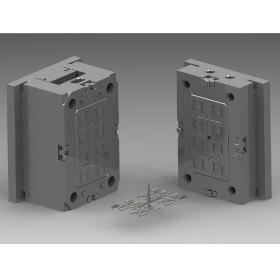
GRI MOLD AND PLASTIC CO.
Turkey
With more than 20 years of experience, Gri Kalıp manufactures molds in world standards. Our company aims to achieve optimal price-quality balance in all projects by adopting the experience and quality standards that it has gained abroad especially in plastic injection molds. Increasing the production capacity of our company, reducing the costs of mold production, is also of great importance for the development of our industry at the same time. Because the greatest cost in mold production is the time of labor and engineering, we aim to shorten the time by producing practical solutions in mold systems with more efficient working principle and not compromising our quality standards or mold materials. For you, Gri Kalıp can be included in the mold making process and you can take advantage of these experiences.
Request for a quoteRequest for quotes
Create one request and get multiple quotes form verified suppliers.
- Only relevant suppliers
- Data privacy compliant
- 100% free



